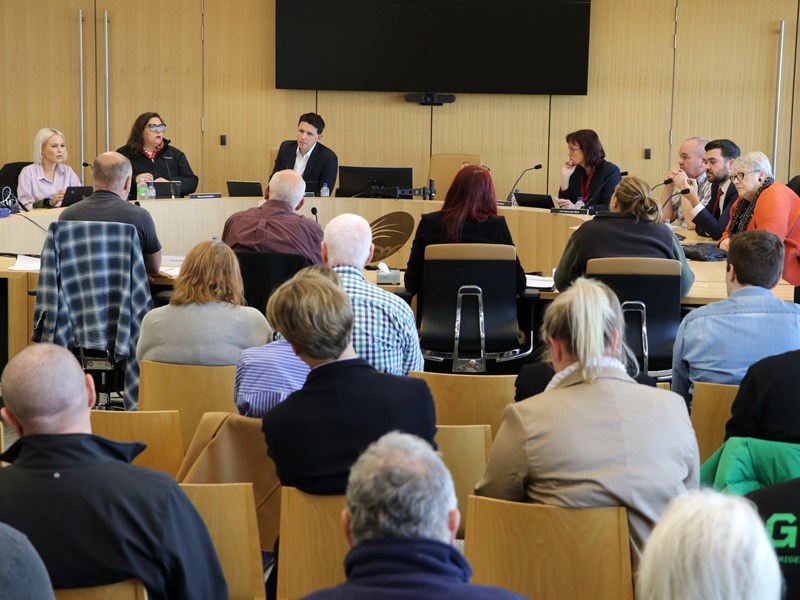Guidance for making a submission
You can participate in an inquiry by making a written submission. Submissions add to a committee’s knowledge and understanding of an issue and may influence the committee’s recommendations.

On this page
Who can make a submission?
Any person or organisation can make a submission to a parliamentary committee.
What should I put in my submission?
Each inquiry has terms of reference which set out the issues the committee will consider. Your submission should address one or more parts of the terms of reference, which can be found on the committee’s website or obtained from the commitee’s office.
Your submissions may include facts, opinions, recommendations or suggested solutions to the issues the committee is considering.
How should I format my submission?
There is no set format for submissions. Your contribution can take the form of a letter, paper or report. When writing your submission, please:
Make your submission brief and clear. If your submission is long, it is helpful to include a summary of your key points on the first page. Please number the pages in your submission.
Make sure your submission is readable. Committees prefer submissions to be A4-size and submitted electronically as a Word or PDF file.
Include additional material if appropriate. You may support your submission with additional material, such as articles or letters. If you wish to give or lend the committee other material such as DVDs, photographs or books, please contact the committee's office.
Make it clear who the submission is from. If you are making a submission on behalf of an organisation, please indicate your position in the organisation and the level at which the submission has been authorised.
Sign your submission. Please sign your submission. If you are sending your submission electronically, please provide your name and contact details (such as address or phone number).
Be relevant and appropriate. A committee may not accept a submission that is not relevant to the terms of reference, is frivolous or contains offensive language or remarks.
When is my submission due?
Committees have tight timelines for completing inquiries, so it is important that you send your submission by the advertised due date. If you are unable to meet the submission deadline, please contact the committee's office as early as possible.
How do I send my submission?
Committees prefer submissions to be made online via e-submission. Visit the e-submissions area of the committee’s website.
Alternatively, to make a submission by email, please call 03 8682 2800 to obtain the correct email address.
Hard copy submissions should be sent to:
[Committee name]
[Inquiry title]
Parliament House, Spring St
EAST MELBOURNE VIC 3002
Will my submission be published?
In general, all submissions accepted by a committee are public documents. This means that the submission may be published on the committee’s website and quoted in the committee’s report to the Parliament.
However, you may request that
- your submission (or part of it) be treated as confidential
- your name, address and any other information that could identify you be removed from the published version of the submission.
The committee will not disclose or publish any submission which it has accepted on a confidential basis. However, confidential evidence will be kept and, in some circumstances, may be released after 30 years.
Please contact the committee for more information.
Parliamentary privilege
Written submissions that are accepted by a committee are protected by parliamentary privilege. This means that no legal action can be taken against you in relation to the evidence in your submission. However, parliamentary privilege applies only to submissions published by the committee. If you choose to publish your submission in another form, for example on your website, that publication will not be protected by parliamentary privilege. You can, however, refer others to your submission on the committee’s website.
With the protection of parliamentary privilege comes your responsibility to not deliberately mislead the committee, which may be punishable as a contempt of Parliament.
Will I get to speak to the committee about my submission?
In addition to receiving written submissions, committees may conduct public hearings to gather evidence by speaking to people directly. If you have made a submission to an inquiry, the committee may contact you and invite you to give evidence at a public hearing.
Phone
For questions about specific inquiries and committees, please visit the Committees page.
Learn more about our current committees and inquiries.

